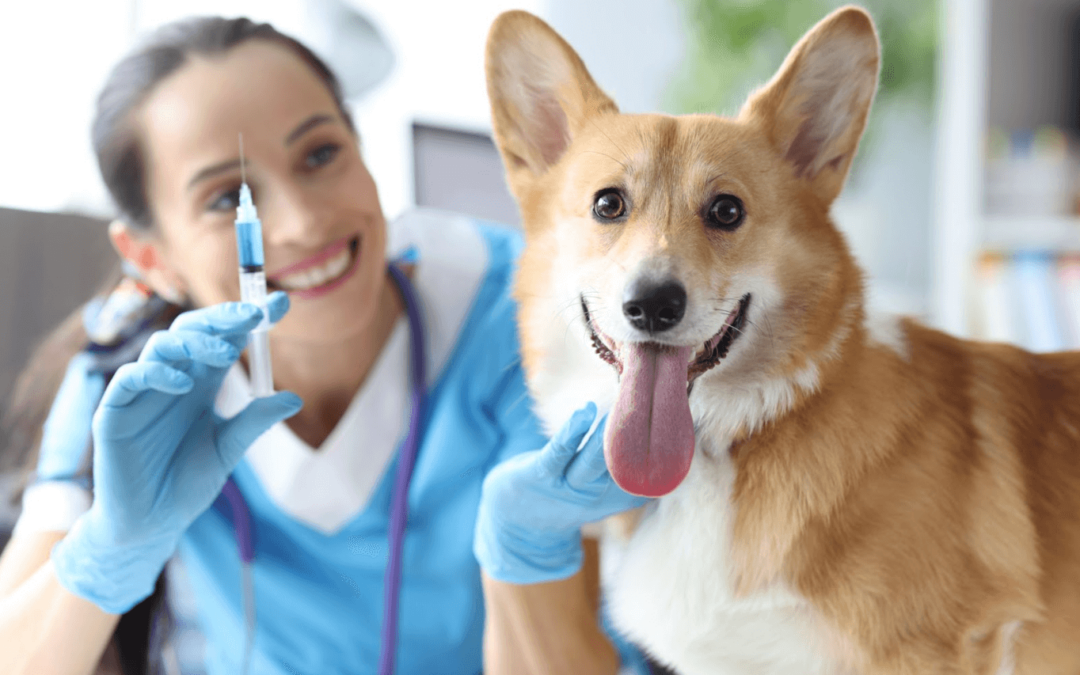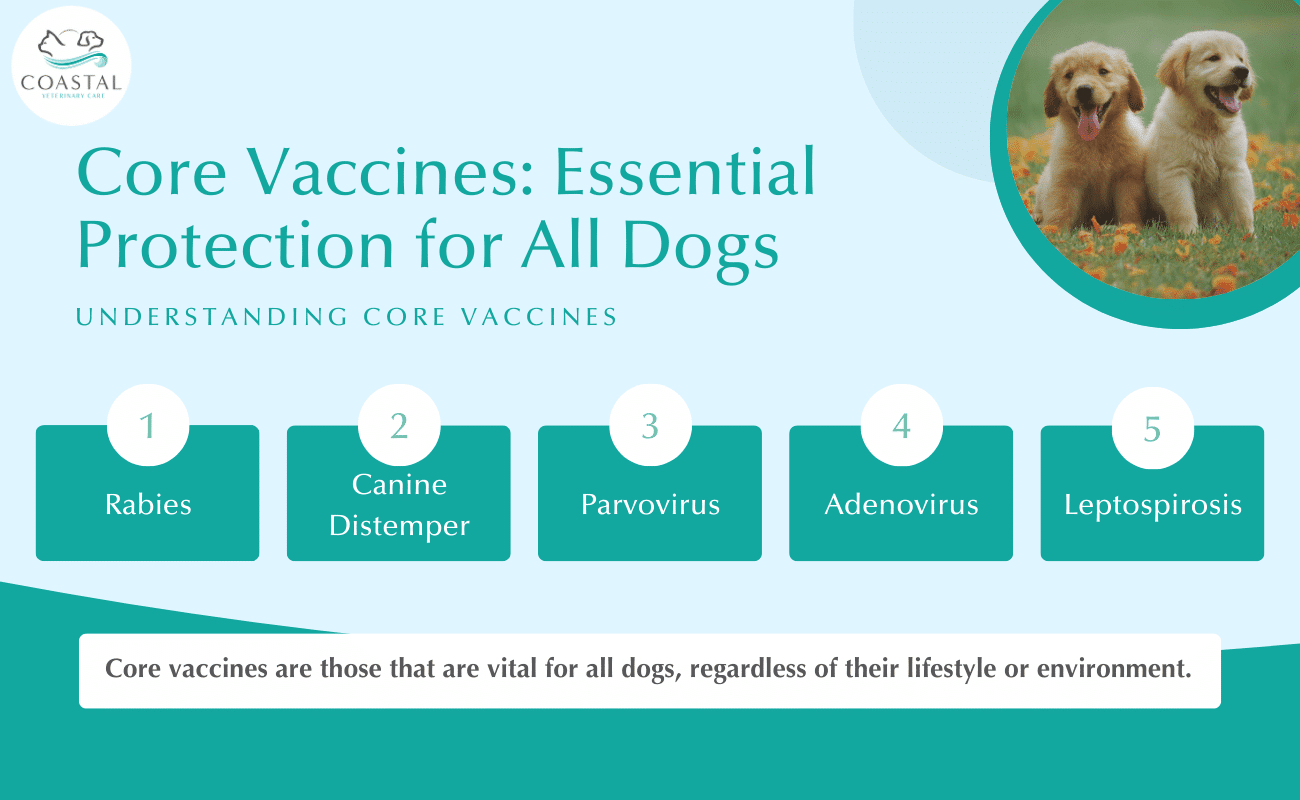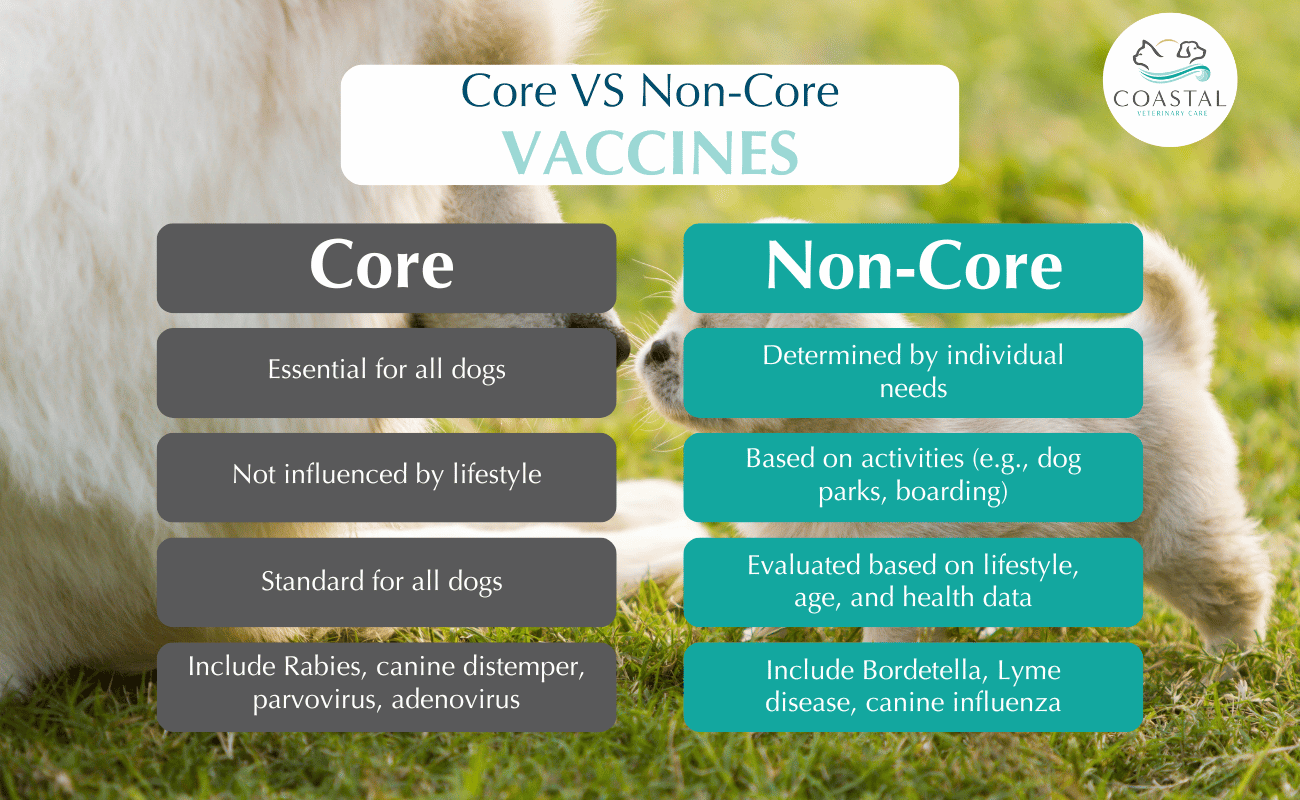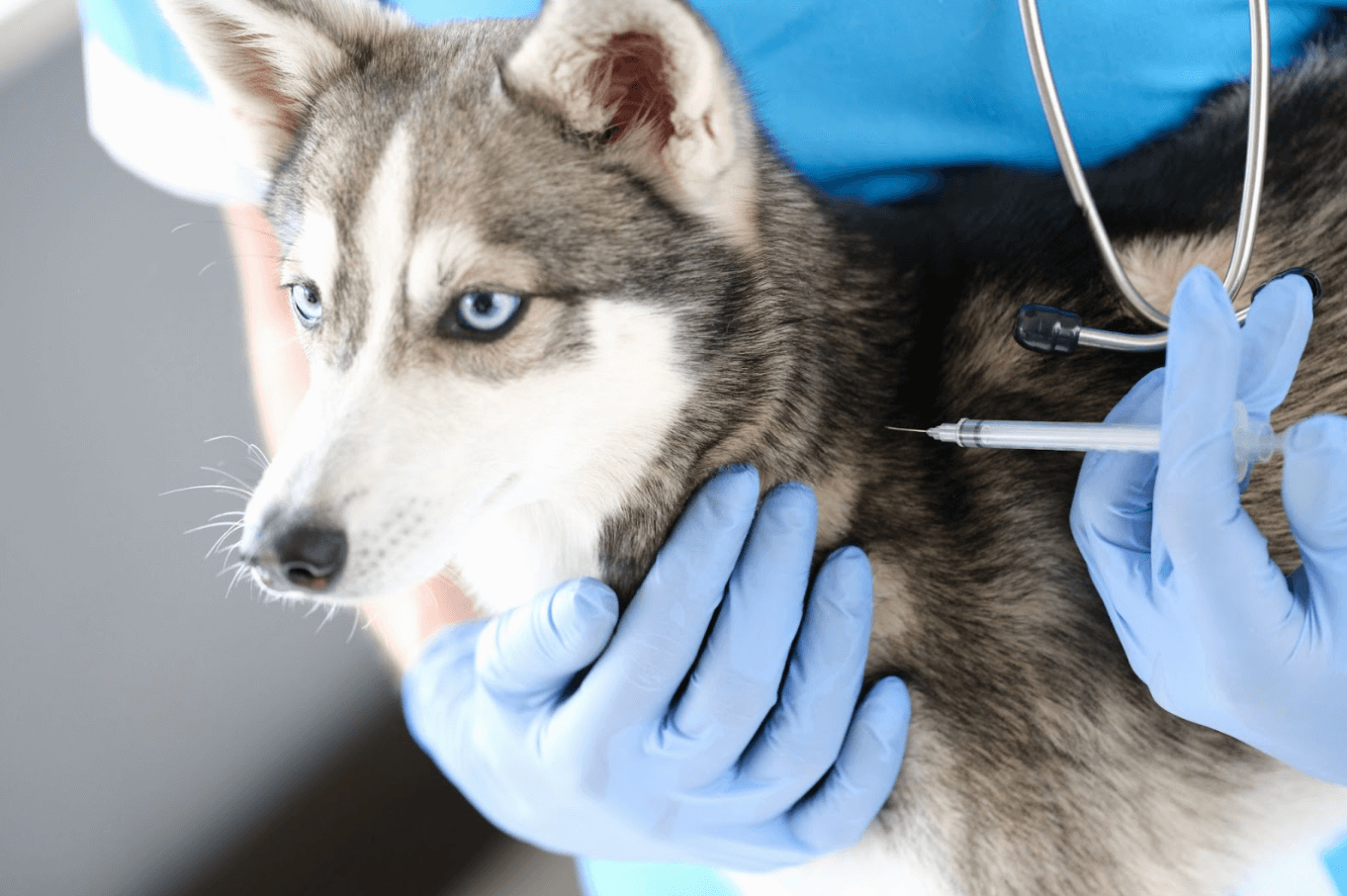Vaccinations are a cornerstone of preventive care for dogs, playing a crucial role in safeguarding their health. Every year, thousands of dogs suffer from preventable diseases, leading to unnecessary pain and sometimes death. By following a vaccination schedule, pet owners can protect their dogs from potentially fatal diseases, helping to build their immune systems and preventing the spread of infectious diseases. Vaccines are not just beneficial; they are essential for maintaining your dog’s overall health and well-being.
A common question among dog owners is, “What vaccines do dogs need yearly?” The answer is straightforward. Dogs either need yearly core vaccines or 3-year vaccines, such as the rabies vaccine, which protects against severe diseases. Additionally, non-core vaccines may be recommended based on your dog’s lifestyle and geographic location, ensuring comprehensive protection tailored to their needs. Understanding the significance of these vaccines and following appropriate vaccination guidelines is vital for every dog owner.
Core Vaccines: Essential Protection for All Dogs
Understanding Core Vaccines
Core vaccines are those that are vital for all dogs, regardless of their lifestyle or environment. The term “core” indicates that these vaccines are necessary for all dogs, as they protect against widespread and serious diseases that pose significant risks to canine health. The primary diseases that core vaccinations protect against include rabies, canine distemper, parvovirus, and adenovirus.
Rabies
Rabies is a viral disease that is notorious for its fatality rate in both animals and humans. It primarily spreads through bites from infected animals. Vaccination is critical, not only for your dog’s safety but also to protect public health.
Canine Distemper
Canine Distemper is a highly contagious viral disease that affects a dog’s respiratory, gastrointestinal, and central nervous systems, distemper can be fatal, especially in puppies and unvaccinated dogs.
Parvovirus
This is another highly contagious viral disease that can lead to severe gastrointestinal illness and is particularly dangerous for puppies. Parvovirus can spread through direct contact with infected dogs or contaminated environments.
Adenovirus (Canine Hepatitis)
Adenovirus causes severe liver disease in dogs. Vaccination against adenovirus can prevent this potentially fatal condition.
Leptospirosis
Leptospirosis causes severe kidney and liver damage in dogs. The American College of Veterinary Internal Medicine made this a core vaccine as it can be fatal to dogs and transmitted to people.
Ensuring your dog receives these vaccines is fundamental to maintaining a robust immune system and protecting them from potentially life-threatening illnesses. Core vaccinations are crucial for every dog, as they provide foundational protection against the most severe and widespread diseases.
The Need for Vaccination Schedules
Establishing a vaccination schedule is vital for both puppies and adult dogs. Puppies require a series of core puppy vaccinations to build up full immunity, usually starting around six to eight weeks of age. The typical puppy vaccination schedule includes the first set of vaccinations given at 6-8 weeks, followed by boosters at 12-16 weeks, and again at 1 year.
As dogs grow into adults, they will need regular booster shots to maintain their immunity against these diseases. For example, the rabies vaccine is often administered in a series of initial vaccinations, followed by boosters every one to three years depending on local regulations and your veterinarian’s recommendations.
Missing these yearly boosters can leave your dog vulnerable to infection. This is particularly concerning for core vaccines, as the diseases they protect against can have severe consequences. Staying up-to-date with vaccinations not only protects your pet but also contributes to community health by reducing the likelihood of disease outbreaks.
Non-Core Vaccines: Tailoring Protection to Your Dog’s Lifestyle
Understanding Non-Core Vaccines
Non-core vaccines are those that are recommended based on specific risk factors associated with a dog’s lifestyle and geographic location. While not every dog requires non-core vaccinations, they are crucial for those that might be exposed to certain diseases due to their environment or activities. Dogs that frequently interact with other dogs or live in areas where certain diseases are prevalent may need additional protection.
Unlike core vaccines, which every dog should receive, non-core vaccines may only be necessary for certain dogs depending on their circumstances. For instance, a dog that spends a lot of time in dog parks or boarding facilities may benefit from additional vaccines that address potential risks associated with those environments.
Key Non-Core Vaccines
Among the most notable non-core vaccines are:
Bordetella Vaccine (Kennel Cough)
This vaccine is essential for dogs that attend boarding facilities, dog parks, or grooming salons. Kennel cough is highly contagious and can spread quickly among dogs in close quarters. The Bordetella vaccine is particularly important for social dogs and those in high-density living situations.
Lyme Disease Vaccine
Recommended for dogs living in or traveling to areas where ticks are prevalent, this vaccine helps protect against Lyme disease. Lyme disease can lead to serious health complications if not treated promptly, including kidney failure and other chronic health issues.
Canine Influenza Vaccine
This vaccine is advised for dogs that frequently come into contact with others, such as those attending dog daycare or dog shows. Canine influenza can spread rapidly and cause respiratory issues, making this vaccine a wise choice for high-contact environments.
Distinguishing Between Core and Non-Core Vaccines
Understanding the difference between core and non-core vaccines is essential for optimal dog health. Core vaccines are necessary for every dog, while non-core vaccines are determined by individual needs. Your veterinarian will evaluate your dog’s lifestyle, age, and environment to ensure the right vaccines are administered.
For instance, if you live in an area with a high prevalence of Lyme disease and your dog enjoys hiking in wooded areas, your vet may recommend the Lyme disease vaccine. Conversely, a dog that primarily stays indoors and has limited contact with other dogs may not need non-core vaccinations.
Regular health checkups will also help keep your dog on the correct vaccination schedule. Your veterinarian can provide guidance on what vaccines are needed based on the latest health data and your dog’s unique situation.
Understanding Risks: Potential Side Effects and Reactions
Potential Side Effects and Allergic Reactions
As with any medical treatment, vaccines can have side effects. Common side effects include mild symptoms like fever, soreness at the injection site, or lethargy. These mild symptoms typically resolve on their own within a day or two.
However, more severe reactions can occur, though they are rare. Signs of an allergic reaction may include swelling, vomiting, or difficulty breathing (anaphylaxis). If your dog experiences any of these severe reactions after receiving a vaccine, it is essential to contact your vet immediately.
Understanding potential side effects can help you monitor your dog’s health after vaccinations. Keeping a close eye on your dog in the hours and days following vaccination can ensure any unusual behavior or symptoms are promptly addressed.
Antibody Titer Testing
To assess your dog’s immune system’s response to vaccinations, antibody titer testing can be beneficial. This test measures your dog’s antibody levels to determine if booster shots are necessary. Titer tests are particularly useful for dogs that have had previous vaccine reactions or for older dogs, as they can reduce the number of unnecessary vaccinations while still ensuring adequate protection.
For many dog owners, the idea of fewer vaccinations is appealing. Titer testing provides a scientific approach to determining whether your dog’s immune system has retained enough memory of previous vaccinations to provide ongoing protection. If your dog’s titer levels indicate sufficient immunity, your veterinarian may recommend postponing or forgoing a booster vaccine.
Ensuring Safe Vaccination Protocols at Coastal Veterinary Care
At Coastal Veterinary Care, we prioritize your dog’s health and safety during vaccinations. We tailor vaccination schedules to meet each dog’s specific needs and monitor dogs closely after vaccination to catch any early signs of adverse reactions.
Our team uses high-quality vaccines and adheres strictly to industry safety protocols, ensuring that your pet receives the best possible care. We understand that every dog is unique, and we strive to provide individualized care to meet their specific health needs.
Our knowledgeable staff is always available to address any questions or concerns you may have regarding your dog’s vaccination plan. We believe that an informed pet owner is key to maintaining their dog’s health, and we aim to provide the resources and guidance needed to make the best decisions for your furry companion.
Keeping Your Dog Healthy With Coastal Veterinary Care
Regular vaccinations are essential for preventing infectious diseases and maintaining your dog’s health. By understanding the importance of both core and non-core vaccinations and adhering to a recommended vaccination schedule, you can significantly reduce the risk of serious health issues for your dog.
If you’re looking for a trusted partner in your dog’s health, contact Coastal Veterinary Care today. We provide comprehensive dog vaccination services, emphasizing safety and maximum care. Our dedicated team is committed to ensuring your pet receives the highest standard of care while staying up-to-date on their pet vaccinations.
With our commitment to your pet’s overall wellness, Coastal Veterinary Care is the best choice for responsible pet owners who want to ensure their dogs live healthy, happy lives. Canine vaccinations are a small step that can lead to a longer, healthier life for your beloved companion, so don’t delay in getting your dog vaccinated.





